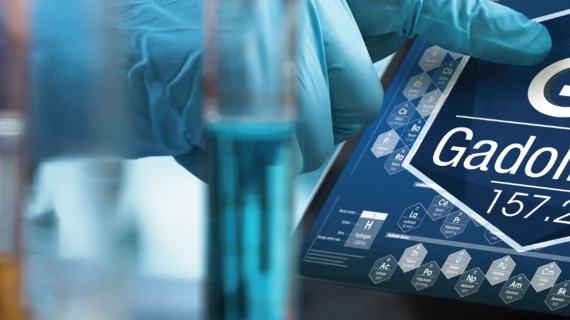Experts share positive news for women who have undergone multiple GBCA exposures during breast MRI
New research shared on Sept. 30 is positive news for women who have been subject to multiple exposures to gadolinium-based contrast agents during breast MRI exams.
Multiple GBCA exposures are known to result in gadolinium deposits in the brain of certain patients, most often in those with neurologic or neuropsychologic disorders, according to most research currently available. But researchers recently found that this is not the case for women who have undergone multiple GBCA exposures during breast MRI scans. Authors of the new study stated that their findings are “reassuring” for both clinicians and patients.
“In light of recent safety concerns of repeated GBCA dosing, studies evaluating the clinical impact of repeated GBCA dosing in this patient population are needed to inform whether such concerns are warranted,” corresponding author of the study Kelly S. Myers, with the Department of Radiology at Johns Hopkins School of Medicine, and colleagues explained.
Multiple organizations recommend young women with increased risk of breast cancer undergo breast MRI. The use of GBCAs is an integral part of these exams, which are frequently repeated to monitor for changes in breast tissue.
For the study, researchers included nine women who had each completed a minimum of five contrast-enhanced breast MRI exams (mean total of exposures was 8). Each woman underwent additional noncontrast brain MRI scans to assess for gadolinium deposits, in addition to completing neurologic and neuropsychologic exams.
The researchers did not observe any associations between brain MRI signal changes and abnormalities on neurologic or neuropsychologic exams. The same was true even for the individuals who had the highest number of GBCA exposures.
Authors of the study stated that the lack of clinical impact of GBCA exposure in this study “may be reassuring for women who undergo annual GBCA exposures as part of their annual breast MRI screening,” although they acknowledged that larger studies are needed to confirm their findings.
More information on the study can be found in Clinical Imaging.

